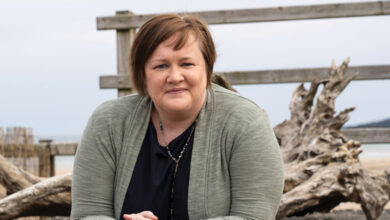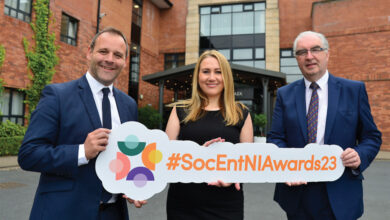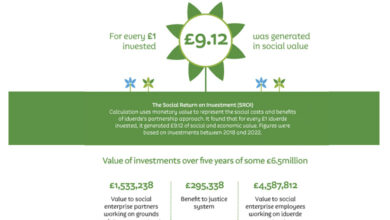SENI: Looking to another decade of progress

The social economy sector in Northern Ireland plays a vital role at the heart of the economy, trading as businesses that generate real profit with purpose and making an impact for those in greatest need in society. Profits created through the sale of goods and services are reinvested back into the individual organisations social mission rather than distributed to shareholders as in an SME.
Since its foundation in 2012, Social Enterprise NI (SENI) has operated as the representative and membership body for the sector and as they embark on another decade, are encouraged by the level of interest and awareness being shown in the work of the sector. There has been continual growth over many years in terms of the number of new start-ups, and the number of organisations from outside the sector who are keen to partner and collaborate.
Indeed, the recognition which SENI has received over recent years is clear evidence of the increasing awareness of their work to promote the sector and the impact which it can have across the Northern Ireland economy. Invitations to take part as members of the High Street Taskforce, Circular Economy Coalition and a council member of the NI Chamber of Commerce have all helped to raise the profile of the work and impact of the sector. Furthermore, the invitation from the Minister of Finance to join the reconstituted Procurement Board exposed the topic of social value and provided a forum to promote the sector and the need for this to be recognised in procurement. The issuance of the Public Procurement Note (PPN) 01/21 which mandates central government to allocate 10 per cent of a tender score to the inclusion of social value was a success, and a step along the way to legislation to align Northern Ireland with other parts of the UK.
PPN 01/21 allows for the potential to increase the scoring of social value in central government contracts from 10 per cent to 20 per cent, subject to an assessment of its usage and how it is managed, however due to the lack of an Executive, this decision has been deferred. There remains a degree of uncertainty on how social value is scored and its overall understanding, with any increase in scoring likely to be next year.
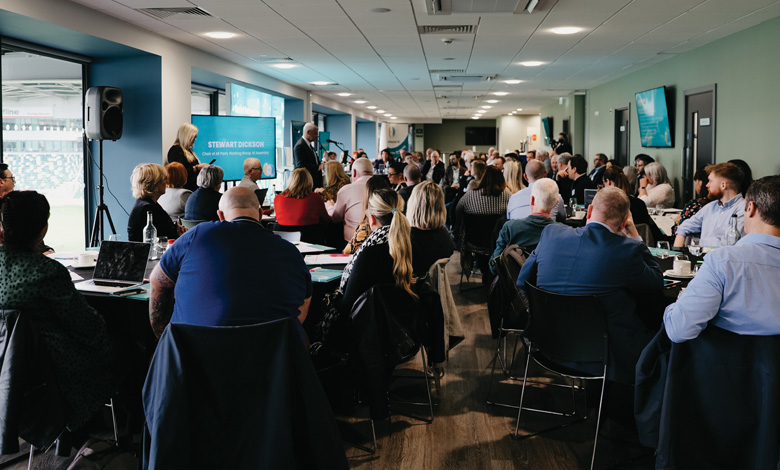
There is no doubt that businesses are being challenged on how they can create social value and meet the criteria of recently issued tender documents. Colin Jess, CEO of Social Enterprise NI comments: “SENI are being approached by private sector bodies for guidance on several aspects of tenders and it is clear that a degree of uncertainty exists, in respect of how to respond to tenders, understanding the scoring within the tender, and the inclusion of appropriate clauses to match the desired outcomes of the contract. We believe that organisations should be encouraged to be innovative in their responses rather than answering questions which are in fact social clauses, however it is appreciated that this in itself creates issues. How do we score these on a consistent basis to ensure fairness? Who is responsible for the contract management once the winning tender has been appointed?
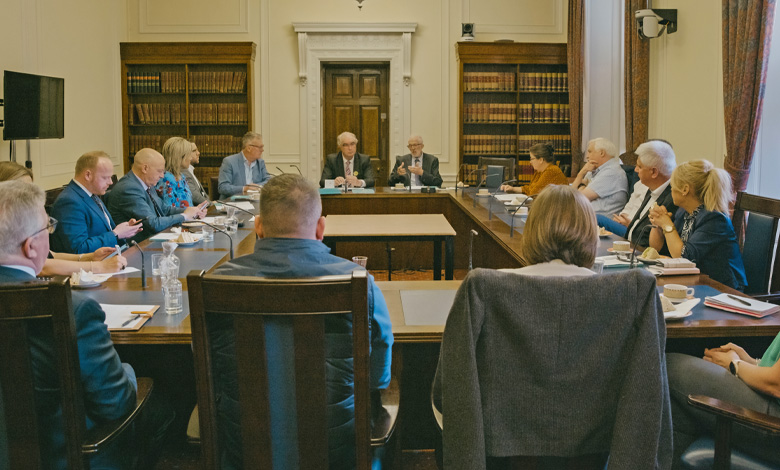
“But more importantly how do you as a private or public sector organisation meet the current requirements to score social value and in a meaningful way and how do you set yourself apart from your competitors? Social value is not just about including social enterprises within your supply chain, though we fully support and encourage this. It is also about how you can add value to a social enterprise through the transfer of skills of your staff. How can your organisation build a relationship with a social enterprise and create a social partnership, which would hopefully be a long-lasting relationship and one which would create significant benefit for both parties. Imagine the strength that a private organisation and a social enterprise could bring to completing a public sector contract through establishing a social partnership.”
To assist in this process, SENI, are soon to launch a brokerage service with access to an interactive directory of all social enterprises in Northern Ireland, currently standing at almost 800. Access to this will be available to all corporate members of SENI, also known as Social Partners. Additionally, via the formation of a Social Value Advisory Taskforce Group consisting of representatives of members, we will be collating feedback on tenders and relaying this to our central government partners to help support future tender documents.
SENI are partnering with Ulster University Business School in developing a programme to support commissioners within the public sector on the options available to them to deliver outcomes, perhaps not necessary via procurement. A pilot is expected to be launched in the autumn of 2023. More details to follow on this shortly.
SENI will be playing a pivotal role in supporting the government departments to connect and partner with social enterprises who can deliver the economic growth of the community wealth building agenda, with the support of the All-Party Group of MLAs.
In conclusion, SENI would encourage you to sign up as a social partner and join the increasing number of organisations who recognise the need to explore how to include social enterprise in their supply chains and who they could partner with. The database of organisations will be an essential tool. Joining will also provide access to conferences, business breakfast events, and virtual sessions to provide you with the opportunity to learn more and to promote your own work.
Join us as a social partner and help create real profit with purpose. Get in touch today and sign up to our mailing list.

E: colin@socialenterpriseni.org
W: www.socialenterpriseni.org

